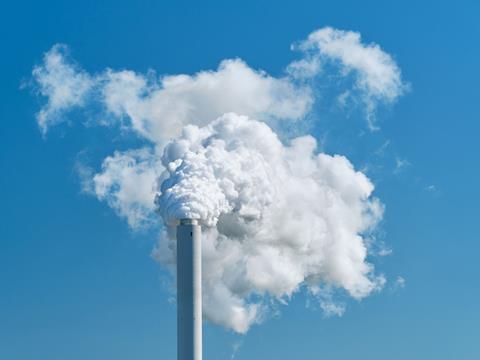
In its journey towards minimizing waste, is the packaging industry losing sight of the crucial importance of making its energy consumption more sustainable? Robert Lilienfeld, founder and executive director of sustainable packaging think tank SPRING, tells us more.
I just came across a National Public Radio (NPR) story here in the U.S. that was entitled “Start Cleaning Your Home More Sustainably with These Tips.” It included the use of lemon juice, baking soda, and reduced packaging.
I also recently read a “Ladder Approach” on LinkedIn that showed consumers how to start small (e.g., refilling water bottles), work up to eating plant-based, rather than animal-based proteins, and then finally switch to electric vehicles (EVs) as the ultimate environmental investment and planet saver.
You’ve heard all of these before, from the quaint and old-fashioned, to the cutting edge technical and modern. In fact, I started talking about these types of consumer suggestions in 1994, when I first began writing and publishing my waste prevention newsletter, The ULS (Use Less Stuff) Report. Back then, these ideas were cutting edge in terms of public awareness. Today, they’re stale and, frankly, trite.
Every time someone decides that all they need to do to turn back the clock on climate change is to buy concentrated laundry detergent, we’ve rewarded them for doing something that frankly has little to no real value in the global fight to reduce greenhouse gas emissions.
This is similar to the recycling mentality, whereby people feel it is OK to buy more of something simply because they toss the used packaging into the recycling bin, rather than the garbage bin.
Realistically, it’s now too late to rely on small efforts and hope that vast percentages of the population will start to engage in them. It has not happened and will likely never happen: Unfortunately, we now appear to live in a divided world where the concept of “greater good” has largely been replaced with “personal liberty.”
What can be done?
We urgently need governments to step in and ensure that two things happen: Eliminate the use of fossil fuels as energy sources, and reduce the total consumption of energy, regardless of the source. This goes for hydro, wind, solar, and nuclear power; along with coal, natural gas, wood, and waste to energy.
Remember, the Second Law of Thermodynamics is immutable: Consuming energy, no matter what its source, will generate entropy in the form of waste. Thus, the more efficient we are in terms of energy consumption, the more sustainable we are in terms of the environment, the economy, and societies.
What can you do as a brand owner, converter, or material producer to help in this effort? First, lobby for, use, and promote the use of, renewable energy resources and even nuclear energy. Second, help your company, your employees, and your customers to do the same. Then, help them to make their homes, automobiles and appliances more energy efficient and less reliant on fossil fuels.
Instead of simply promoting (and possibly greenwashing) the supposed sustainable value of your products and packages, spend your time and money on helping to increase the residential and commercial use of non-fossil fuel-based energy resources. Include your efforts in annual reports, sustainability reports, ESG filings, advertising and, yes, on your packaging.
Once the use of fossil fuels for energy is off the table, the use of fossil fuels for plastics production becomes almost irrelevant to the public. If we can alleviate the really big problems related to greenhouse gas generation, the small ones will fade away, as their existence will no longer be magnified.
In this manner, the real value of plastics, in terms of source reduction, cost reduction, and material efficiency, can once again become publicly acceptable.














No comments yet